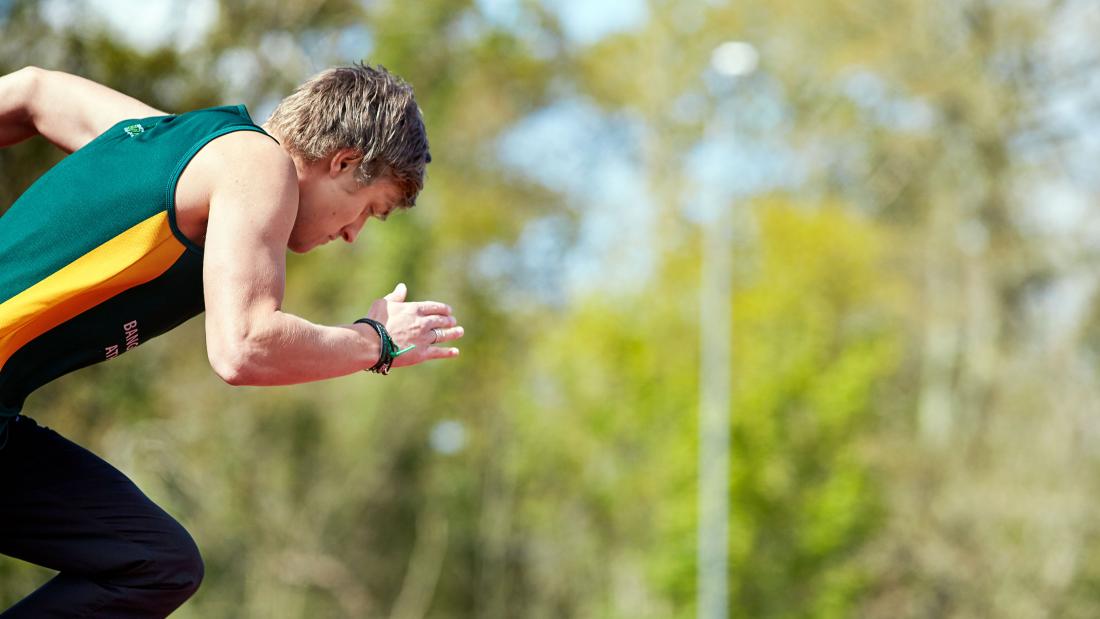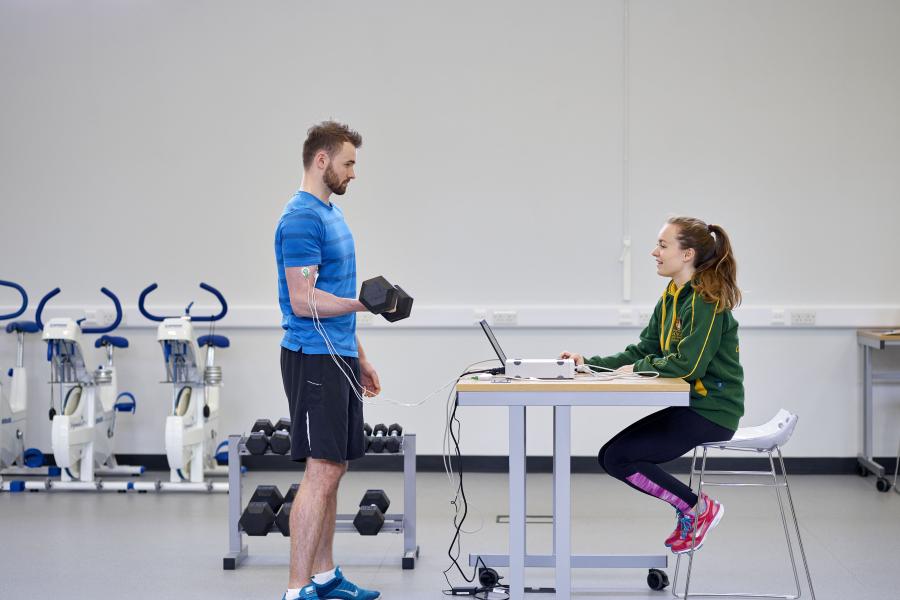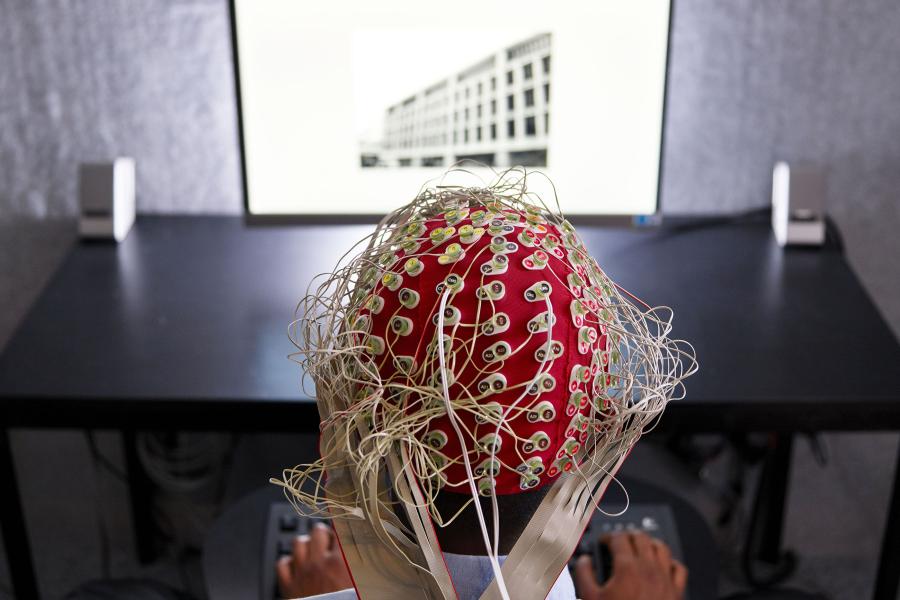About This Course
This MSc degree in Sport and Exercise Psychology is accredited by the BPS. Students who complete the degree could therefore achieve Stage 1 training of the qualification in Sport and Exercise Psychology. This is a key component of the career pathway to becoming a chartered psychologist. The course focuses on developing your scientific understanding of the human mind, behavior and experience, and the complex interactions between these and the domain of sport and exercise. It has been designed to be flexible and relevant to your individual needs and interests, with a strong emphasis, in the taught component of the course, on the links from of theory to practice. The degree will equip you with a blend of evidence-based knowledge and practical skills that act as a stepping-stone to prepare you for a career working with individuals who are involved in these specific settings.
Professional Accreditation
The School is proud to have been the first to gain BPS postgraduate professional training accreditation for this MSc programme. The course aims to provide Stage One of the training required to achieve Chartered Status and full membership of the BPS’s Division of Sport and Exercise Psychology.
Please note: This programme is available to all applicants with at least a 2.2 honours degree in a subject with a substantial psychology component. Applicants who already hold Graduate Basis for Chartered Membership (GBC) of the British Psychological Society (i.e., they have undertaken a BPS accredited undergraduate degree), OR those who plan to obtain it by subsequently completing a BPS accredited conversion course will be eligible for Chartered Status and full membership of the BPS's Division of Sport and Exercise Psychology upon graduation. Applicants who do not hold Graduate Basis for Chartered Membership are still eligible to apply for this programme and upon successful completion will graduate with an MSc in Sport and Exercise Psychology, but this will not be BPS accredited.
To have GBC, students must have successfully completed a BPS accredited undergraduate degree. For more information about BPS accreditation and to check the accreditation status of a course that you have completed please click here. Click here for information about conversion courses. For applicants without GBC we would normally only admit those whose first degree has a substantial psychology component. Should you want to discuss your eligibility before applying, please email sport@bangor.ac.uk.
The BPS does not accredit overseas institutions (apart from Chinese University of Hong Kong and University of Hong Kong) therefore students with an overseas degree in Psychology will need to apply for individual Graduate Membership of the BPS. International students can apply for individual recognition by the BPS here.
Due to our reputation for research excellence we attract students from all over the world and have postgraduate course leaflets available in Arabic and Chinese.
Further Information
Have a look at this page for more reasons to study for a postgraduate degree in the field of Sport, Health & Exercise Sciences at Bangor University. You can also find some funding information here for students applying to study on any taught postgraduate programme. There is also a Bangor’s Sports Scholarship scheme for those who excel at sport.
Course Content
What will you study on this course?
Sport and exercise psychology is a specific discipline of sport and exercise science that is applied to populations who seek to enhance their physical ability, performance and / or health in sport and casual exercise settings.
This Sport and Exercise Psychology MSc is accredited by the BPS. Students who complete the degree could therefore achieve Stage 1 training of the qualification in Sport and Exercise Psychology. This is a key component of the career pathway to becoming a chartered psychologist. The course focuses on developing a student’s scientific understanding of the human mind, behaviour and experience, and the complex interactions between these and the domain of sport and exercise. It has been designed to be flexible and relevant to the student’s individual needs and interests, with a strong emphasis, in the taught component of the course, on the links from of theory to practice. The degree will equip students with a blend of evidence-based knowledge and practical skills that act as a stepping-stone to prepare them for a career working with individuals who are involved in these specific settings.
The programme is taught through traditional lectures, interactive seminars, one-to-one tutorials, and computer sessions. Students will gain experience of working independently and in group-based settings both in the classroom and in seminars with a practical focus, as well as completing a substantial period of self-study that includes the completion of a research project. To complement this, the programme takes a largely real-world approach to assessment by assessing case-reports, the ability to communicate effectively with diverse populations, and the delivery of presentations (e.g., posters and talks).
Graduates will be able to show a critical knowledge and understanding of the scientific principles that are involved in effective psychological interventions in sport and exercise settings; demonstrate an understanding of the scientific principles and statistical procedures that underpin effective research design, data collection, and data interpretation in sport and exercise science; and illustrate how scientific principles can be used to design and evaluate interventions in sport and exercise-related scenarios.
Graduates will develop a range of discipline-specific techniques that might be used when collecting data for research and/or applied purposes. They will have developed contextual awareness and problem solving when considering how scientific principles and practical interventions might be applied to sport and exercise scenarios and will be able to interpret and communicate psychology driven scientific data to suit the needs of the audience. They will also be able to demonstrate a broad range of key skills, including awareness of health and safety and ethical considerations.
Graduates will additionally have honed their communication and presentation skills, interactive and group skills, reflective practice skills, and numeracy and Information and Communication Technology skills. Hence, graduates will be able to demonstrate professionalism as required in the workplace.
The programme shall be assessed in accordance with the University’s regulations and codes of practice. For students to have this degree accredited by the BPS, they must pass every module at 50% or above and must complete the research project and pass the research project module at 50% and above.
Modules for the current academic year
Module listings are for guide purposes only and are subject to change. Find out what our students are currently studying on the Sport and Exercise Psychology (BPS Accredited) MSc Modules page.
Course content is for guidance purposes only and may be subject to change.
Entry Requirements
At least a 2.2 honours degree in a relevant subject (or equivalent).
Students with a degree from a different academic area may also be considered. Working professionals with non-graduate qualifications will be assessed on an individual basis. For applicants without GBC we would normally only admit those whose first degree has a substantial psychology component. Should you want to discuss your eligibility before applying, please email sport@bangor.ac.uk.
EU and Overseas students, whose first language is not English, are required to take the standardised English Language test (IELTS) before starting the course. Students who achieve a score of 6.0 or above (no individual score below 5.5) are eligible for direct entry to the course. The University offers pre-sessional language courses before courses start through ELCOS for those that need additional support reaching the required level.
To graduate with Graduate Basis for Chartered Membership (GBC) of the British Psychological Society (BPS), UK students must have successfully completed a BPS accredited undergraduate degree. For more information about BPS accreditation and to check the accreditation status of a course that you have completed please click here. Students with an overseas degree in Psychology will need to apply for individual Graduate Membership of the BPS if they wish to graduate with BPS GBC. International students can apply for individual recognition by the BPS here.
Careers
All our postgraduate programmes are designed (with further training where appropriate) to enhance the career prospects of Sport, Health and Exercise Science graduates. Career destinations of Bangor postgraduates include: the Home Country Sports Institutes, National Governing Bodies, the Olympic Medical Institute, Professional sports teams and organisations, the fitness industry, the NHS (hospitals and Primary Care Trusts), Teaching and Education (after completing a Postgraduate Certificate of Education). Further postgraduate study (ie Doctoral research) is another vocational route.
This specific degree will provide you with a stepping-stone towards the qualifications that are required to work with athletes and exercisers in psychological settings (e.g., amateur and professional athletes and/or casual exercise / health and wellness settings). The degree is also an ideal starting-point if you want to pursue further academic study in research driven environments, and ultimately careers in research (e.g., research fellow, PhD). You’ll also obtain transferrable skills that they might be able to use in careers outside of sport and exercise psychology, both in the public and private sector.



